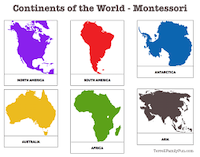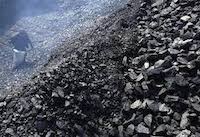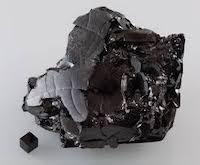- [ Activity List ] [ 목차 ] [ Lista de actividades ] [ Lista de atividades ]
- Easy TV 초급용 TV TV fácil TV fácil
- English File Films
- English File Beginner
- American English File 1
- American English File 2
- American English File 3
- 3.1 Jenny's and Rob's Story
- 3.2 Meeting Jenny's Parents
- 3.3 Harry Questions Rob
- 3.4 Rob's Interview
- 3.5 Lunch with Kerri
- 3.6 Friendly New Yorkers
- 3.7 Coffee with Monica
- 3.8 Old Friends
- 3.9 Jenny meets Paul
- 3.10 Playing Pool with Paul
- 3.11 A Boys' Night Out
- 3.12 The Morning After
- 3.13 Jenny gets a surprise
- 3.14 Jenny questions Rob
- 3.15 Rob gets serious
- American English File 4
- 4.1 Jenny Arrives in London
- 4.2 Reporting Lost Luggage
- 4.3 A Zoom Call with Rob
- 4.4 Trouble with the Car
- 4.5 Renting a Car
- 4.6 Where is Henry?
- 4.7 Jenny calls Rob
- 4.8 Talking to the Police
- 4.9 A Threatening Message
- 4.10 Advice from Rob
- 4.11 Roommate Rules
- 4.12 Making a Plan
- 4.13 Looking for Clues
- 4.14 Luke gives directions
- 4.15 Henry Rescued
- TN Fundamental
- F.1 Nice to Meet You
- F.2 Who's that?
- F.3 How do I get there?
- F.4 Who's this?
- F.5 You're late!
- F.6 Do you like this blouse?
- F.7 Welcome to my new apartment
- F.8 What do you do in the morning
- F.9 Making a weekend plan
- F.10 Tonight I'm cooking
- F.11 How was yout trip?
- F.12 She has a fever
- F.13 Do me a favor?
- F.14 I'd like to get married
- Top Notch 1
- 1.1 Giorgio Moretti
- 1.2 Interviewing Giorgio
- 1.3 Making a weekend plan
- 1.4 Paul gives directions
- 1.5 Cheryl's family
- 1.6 Bob's memory trick
- 1.7 What's in the salad
- 1.8 Eating healthy
- 1.9 Where are the tickets?
- 1.10 Paul and Machines
- 1.11 Bob's Exercise
- 1.12 Bob's Exercise advice
- 1.13 Mr. Rashid's vacation
- 1.14 What a vacation!
- 1.15 Which do you prefer?
- 1.16 Fashion for Bob
- 1.17 A trip to South Africa
- 1.18 Paul's African Adventure
- 1.19 Bargaining
- 1.20 I'll leave the tip
- Top Notch 2
- 2.1 Have we met before?
- 2.2 The Museum of Cheese
- 2.3 Choosing a movie
- 2.4 The movie star
- 2.5 Can I take a message
- 2.6 Hotel complaints
- 2.7 Paul's accident
- 2.8 A luxury van
- 2.9 How about a manicure?
- 2.10 Bob's haircut
- 2.11 A sit-down meal
- 2.12 What's for dessert?
- 2.13 What is that color?
- 2.14 Feeling blue?
- 2.15 Art for the office
- 2.16 Paul the artist
- 2.17 The computer expert
- 2.18 New office tech
- 2.19 Marie flirting
- 2.20 Bob the romantic
- Top Notch 3
- 3.01 A little early
- 3.02 Etiquette in India
- 3.03 Are you ok?
- 3.04 Too much medicine
- 3.05 Rush job
- 3.06 Planning the party
- 3.07 Bob the dancer
- 3.08 The etiquette teacher
- 3.09 Planning the wedding
- 3.10 A new holiday
- 3.11 Somewhere safe
- 3.12 An epidemic in Finland
- 3.13 Bob's history book
- 3.14 Newspapers
- 3.15 New technology
- 3.16 Paul's phone buzzer
- 3.17 Discussing politics
- 3.18 I'm not a radical
- 3.19 Planning a honeymoon
- 3.20 A trip to Tahiti
- Friends (easy 1)
- First Kiss
- Annoying Habits
- Ross's Monkey
- The Egg Pickup Line
- Joey's Thanksgiving Meal (1)
- Joey's Thanksgiving Meal (2)
- Decorating the Christmas Tree
- Trip to London (1)
- Trip to London (2)
- Trip to London (3)
- Trip to London (4)
- Trip to London (5)
- Trip to London (6)
- Trip to London (7)
- Trip to London (8)
- Friends (easy 2)
- The Halloween Party (1)
- The Halloween Party (2)
- Christmas Trees
- New Year's Kiss
- New Year's Resolutions
- Three Years Earlier (1)
- Three Years Earlier (2)
- Three Years Earlier (3)
- Three Years Earlier (4)
- Three Years Earlier (5)
- Three Years Earlier (6)
- Three Years Earlier (7)
- Phoebe the Secretary (1)
- Phoebe the Secretary (2)
- Phoebe the Secretary (3)
- Joey Hates Janice (1)
- Joey Hates Janice (2)
- Joey Hates Janice (3)
- The Book Swap (1)
- The Book Swap (2)
- TV Programs TV 드라마 Dramas de TV Programas de TV
- Big Bang Theory
- #1. New Neighbor
- #2. A Perfect Place to Sit
- #3. Penny's Halloween Party
- #4. Roommate Agreements
- #5. Sheldon Needs a Ride
- #6. Game Addict (1)
- #7. Game Addict (2)
- #8. Sick at home
- #9. Penny's Christmas Gift
- #10. Money in Relationships
- #11. Friends and Betrayal
- #12. Bullying
- #13. Valentine's Gifts
- #14. Texting Date
- #15. The Fortune Teller
- #16. Taking Care of your Parents
- Emily in Paris
- #1. Emily's Opportunity
- #2. Emily's First Day
- #3. Problems in Paris
- #4. Lunch with Mindy
- #5. Luc Apologises
- #6. Emily Breaks Up
- #7. Dinner with Mindy
- #8. Corporate Commandments
- #9. Sexy or Sexist
- #10. Emily and De L'Heure
- #11. Buying Flowers with Camille
- #12. The Elevator Pitch
- #13. Perfume for the Hotel
- #14. Dinner by Gabriel
- #15. Angry Julien
- #16. The Bad Collab
- #17. The Champagne Campaign
- #18. Emily's Birthday
- #19. Magic Leek Soup
- #20. Gabriel's Restaurant
- #21. Restaurant Opening
- #22. Heat Wave
- #23. Drinking in Class
- Friends
- #1. Rachel Runs Away
- #2. Rachel Gets a Job
- #3. Ross's Ex-Wife
- #4. Ross Has a Son (1) [PDF]
- #5. Ross Has a Son (2) [PDF]
- #6. Phoebe and Evolution
- #7. Lost baby on a bus (1)
- #8. Lost baby on a bus (2)
- #9. Chandler vs. Bullies (1)
- #10. Chandler vs. Bullies (2)
- #11. Rachel Quits
- #12. Chandler + Joey's sister (1)
- #13. Chandler + Joey's sister (2)
- #14. Ross's Skin Issue [PDF]
- #15. The Dirty Apartment
- #16. Rachel's Job Interview
- #17. The Ride Along (1)
- #18. The Ride Along (2)
- #19. Searching for presents
- #20. Joey works at Central Perk
- #21. Late Valentine
- #22. The Best Nap Ever
- #23. Chandler Hates Dogs [PDF]
- #24. Phoebe mugged Ross
- #25. Joey doesn't share food
- #26. Valentine's Ritual
- Friends (easy 1)
- First Kiss
- Annoying Habits
- Ross's Monkey
- The Egg Pickup Line
- Joey's Thanksgiving Meal (1)
- Joey's Thanksgiving Meal (2)
- Decorating the Christmas Tree
- Trip to London (1)
- Trip to London (2)
- Trip to London (3)
- Trip to London (4)
- Trip to London (5)
- Trip to London (6)
- Trip to London (7)
- Trip to London (8)
- Friends (easy 2)
- The Halloween Party (1)
- The Halloween Party (2)
- Christmas Trees
- New Year's Kiss
- New Year's Resolutions
- Three Years Earlier (1)
- Three Years Earlier (2)
- Three Years Earlier (3)
- Three Years Earlier (4)
- Three Years Earlier (5)
- Three Years Earlier (6)
- Three Years Earlier (7)
- Phoebe the Secretary (1)
- Phoebe the Secretary (2)
- Phoebe the Secretary (3)
- Joey Hates Janice (1)
- Joey Hates Janice (2)
- Joey Hates Janice (3)
- The Book Swap (1)
- The Book Swap (2)
- The IT Crowd
- The Last of Us
- Modern Family
- #1. Modern Family Fighting (1)
- #2. Modern Family Fighting (2)
- #3. The Hot Neighbor
- #4. Jay's Night
- #5. Manny's Online Date
- #6. The Ex-Girlfriend
- #7. The Noisy Dog
- #8. No Internet Contest (1)
- #9. No Internet Contest (2)
- #10. Self-diagnosis
- #11. Boundaries (1)
- #12. Boundaries (2)
- #13. Lily on a Leash
- #14. Moving in Together
- #15. Common Courtesy
- #16. Mitch Takes Care of Cam
- #17. Man Date (1)
- #18. Man Date (2)
- #19. Halloween at Work
- #20. The Christmas Tree
- #21. Valentine's Gifts
- The Office
- #1. Introducing the Office
- #2. Downsizing
- #3. Someone to Fire
- #4. Job Application
- #5. Complaints Against Jim
- #6. Pam and Jim
- #7. Jim Loves Pam
- #8. Jim Leaves the Office
- #9. Branch Closure
- #10. Branch Saved
- #11. Selling Paper
- #12. The Injury
- #13. Dwight's Side Job
- #14. Michael's Sensitivity Training
- #15. Nepotism
- Seinfeld
- Ted Lasso
- Wednesday
- #1. Nevermore [PDF]
- #2. The New Roomie
- #3. Outcast Cliques
- #4. Dividing the Room
- #5. Thing
- #6. Cheering Up Enid
- #7. The Poe Cup
- #8. Poe Cup Champions
- #9. The Nightshades
- #10. A Date for the Dance
- #11. Finding a Dress
- #12. Invitation from Thing
- #13. Parents' Day
- #14. Uncle Fester
- #15. Birthday
- #16. Annoying Roommate Habits
- Big Bang Theory
- Movies 영화 Películas Filmes
- About Time
- Charlotte's Web
- #1. The Pig Rescue
- #2. A New Home
- #3. Let's Play
- #4. Templeton the Rat
- #5. Wilbur's New Friend
- #6. A Spider's Meal
- #7. Gussy's New Family
- #8. Spider Rescue
- #9. Some Pig
- #10. Wilbur's Fame
- #11. Terrific
- #12. Radiant
- #13. Fern's Plan
- #14. To the Fair
- #15. Big Uncle
- #16. Bird Battle
- #17. The Humble Pig
- #18. Charlotte's Egg Sac
- #19. Templeton's Rescue
- #20. Charlotte's Children
- Harry Potter
- The Hobbit
- The Intern
- #1. The Video Cover Letter [PDF]
- #2. Job Interviews [PDF]
- #3. The New Interns [PDF]
- #4. Ben meets Jules [PDF]
- #5. A New CEO [PDF]
- #6. Ben Gives Jules a Ride [PDF]
- #7. Chicken Soup [PDF]
- #8. Ben Meets the Family [PDF]
- #9. Ben joins Facebook [PDF]
- #10. Jules Apologizes
- #11. Becky Breaks Down
- #12. Jules Hires a CEO
- #13. Jules Visits Ben
- La La Land
- Men in Black
- Notting Hill
- Passengers
- Wonka
- Other Movies
- Language Skills 언어 능력 Lingüísticas Habilidades
- Academic 학술 Académicas Acadêmicas
- News Headlines 뉴스 헤드라인 Titulares de las Noticias Manchetes de notícias
- News Stories 뉴스 Las Noticias Notícias
- Pig Heart Transplant [PDF]
- Starbucks in Italy
- Is the MBTI meaningless? [PDF]
- The Benefit of Napping
- The Dark Side of Avocados
- Language Learning in England
- Korean Comfort Women
- Air Pollution and Intelligence
- Building robots in school
- Oldest message in a bottle
- Growing in space
- Tattoo Danger
- School for Tired Teens
- Low Korean Birth Rate
- Seven New Planets
- Coffee-Powered Buses
- Bangkok Street Food
- Life in North Korea
- Annoying Sounds
- Academic (TOEFL) 학술 (TOEFL) Académicas (TOEFL) Acadêmico (TOEFL)
- Driverless Cars
- Love and Friendship
- Love is a Drug
- Why do we drink?
- The Origins of Language
- Nuclear Energy
- The Periodic Table
- Sleep & Loneliness
- Tribalism among Children
- The Asteroid Crater
- Electric Plants
- Passenger Pigeon Extiction
- An Unusual Supernova
- The Benefits of English
- Brain Training Apps
- The Genetics of Intelligence
- The Science of Pain
- Dog Intelligence
- The Lost City
- Misophonia
- The Mongol Empire
- Nature Videos 자연 동영상 Videos de la Naturaleza Vídeos da natureza
- Other 기타 Otras Outras
- Easy TV 초급용 TV TV fácil TV fácil
 English
English Português
Português Español
Español 한국어
한국어

